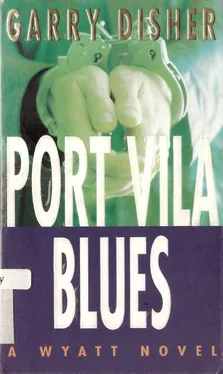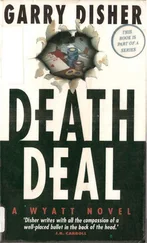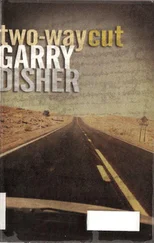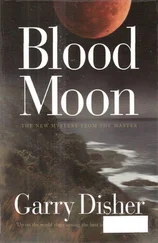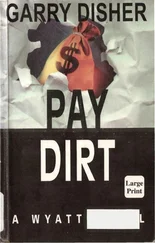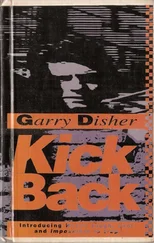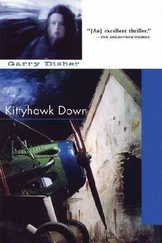Garry Disher - Port Vila Blues
Здесь есть возможность читать онлайн «Garry Disher - Port Vila Blues» весь текст электронной книги совершенно бесплатно (целиком полную версию без сокращений). В некоторых случаях можно слушать аудио, скачать через торрент в формате fb2 и присутствует краткое содержание. Жанр: Криминальный детектив, на английском языке. Описание произведения, (предисловие) а так же отзывы посетителей доступны на портале библиотеки ЛибКат.
- Название:Port Vila Blues
- Автор:
- Жанр:
- Год:неизвестен
- ISBN:нет данных
- Рейтинг книги:4 / 5. Голосов: 1
-
Избранное:Добавить в избранное
- Отзывы:
-
Ваша оценка:
- 80
- 1
- 2
- 3
- 4
- 5
Port Vila Blues: краткое содержание, описание и аннотация
Предлагаем к чтению аннотацию, описание, краткое содержание или предисловие (зависит от того, что написал сам автор книги «Port Vila Blues»). Если вы не нашли необходимую информацию о книге — напишите в комментариях, мы постараемся отыскать её.
Port Vila Blues — читать онлайн бесплатно полную книгу (весь текст) целиком
Ниже представлен текст книги, разбитый по страницам. Система сохранения места последней прочитанной страницы, позволяет с удобством читать онлайн бесплатно книгу «Port Vila Blues», без необходимости каждый раз заново искать на чём Вы остановились. Поставьте закладку, и сможете в любой момент перейти на страницу, на которой закончили чтение.
Интервал:
Закладка:
He saw the ferry leave the island. It made the harbourside run every few minutes, twenty-four hours a day, a two-minute trip each way. Crystal watched the ferry skirt around a couple of two-masted yachts. One looked worn and hard-working. A bearded man was pegging towels and T-shirts to a rope above the galley. The words ‘Miami Florida’ were painted across the stern. The other yacht was tidier and more seaworthy by about a quarter of a million dollars. It came from Portsmouth and Crystal was betting the owner was one of the loudmouths in the Malapoa Restaurant.
The ferry docked and Crystal got ready to board. It was a long, low, flat-bottomed aluminium craft fitted with a canopy roof. The sides were painted in bright splashes of colour: words, symbols and shapes that reminded Crystal of the sanctioned graffiti he’d seen on railway underpasses in Melbourne.
One person got off. Three got on with Crystal. He eyed them briefly: two kids with slim brown legs and a local man dressed in a white shirt and a black cotton wrap-around garment like a skirt. The words ‘Reriki Island Resort’ were stencilled on the top pocket of his shirt.
The ferry drew away from the wharf. Crystal looked back at the receding harbour shoreline, the mixture of waterfront businesses, rusting warehouses and tattered inter-island cargo ships. At the midway point he saw the resort’s minibus pull into the carpark. He’d beaten it by only a few minutes. The driver and passengers got out and he saw the driver begin to stack the luggage next to the ferry landing.
The ferry docked at the island and Crystal alighted with the other passengers. Steep paths led up to the main buildings. The grounds were carefully landscaped: neat palms, pandanus, small banyans, orchids, coral-edged walking tracks, close-cropped grass in between.
Crystal sat on a bench at the centre of a patch of grass. The clouds cleared suddenly and he was drenched in late afternoon sunlight. There were several tourists nearby, doing what he was doing, enjoying the sun. He half closed his eyes, waited, and saw a Reriki Island bellboy wheel a trolley-load of suitcases up to the main office. The tartan suitcase was unmistakeable among them.
A few minutes later, Crystal followed. There were plenty of people about: visitors, people staying at the resort, resort staff. No one looked twice at him.
The main building was constructed to resemble an oversized jungle village meeting place: a high-ceilinged roof, exposed beams, open sides, a suggestion of bamboo fronds and rattan. It housed a bar, a dining room and the reservations desk. Crystal sat at a small cane table in a shadowy far corner of the vast room. He had 20-20 vision. The sky remained clear and he could see every detail of the harbour, the yachts and the distant rocky beaches smudged with mangroves and casuarinas. He could also see the bar clearly, and the reservations counter where the new arrivals’ luggage was being stacked by a porter.
Half an hour later the tartan suitcase was the only one not claimed or delivered to any of the cabins. Nursing a beer, Crystal maintained his watch over it. He grew drowsy. A small drama at the bar woke him, shouts of ‘bon jour’ as a middle-aged white man came into the bar and clasped several of the black staff. He seemed to be a great hit with them. ‘Bon jour,’ they said, and he beamed, and asked after their kids.
Crystal headed for the cover of a cane screen, fear and hate hammering in his heart. The man himself, centre of all his recent misery. Crystal peered around the screen. There was no mistaking De Lisle: aged about fifty, starting to go plump and soft, wearing a white shirt, white trousers, and a straw hat with a red band around it. The humidity seemed to be affecting him. He was pink in the face and mopped his forehead and neck with a blue handkerchief. He twinkled a lot, a hot, damp man in the tropics, surrounded by admirers. At one point he took an asthma spray from his pocket and sucked on it frantically, closing his eyes for a moment afterwards, his fleshy chin tipped back, rising to the tips of his neat tasselled shoes as though preparing to levitate, then returning with a smile to the people circling him, calling ‘bon jour’ to the bartenders, who were all grinning.
Lou Crystal took in every hated detail about the man. Then he took in how De Lisle left with the tartan suitcase, carrying it down to the jetty, where a waiting water taxi took him to a little dock under a cliff-top mansion on the other side of the harbour.
Nine
The house was on a cliff top two kilometres from the post office in the centre of Port Vila. It had been built for the director of a French bank a couple of years before Independence in 1980, and that fact accounted for the two features that De Lisle had been looking for when he bought the place. One, the house was luxurious, the plunging grounds beautifully terraced, with harbour frontage and views across the blue water to Reriki, the island resort in the bay; two, the nervous French colonist had erected a steel-mesh security fence around the perimeter to keep the rebels out. Now Vanuatu was a republic but the fence was still there. In fact, De Lisle had also upgraded the alarm system inside the house. All that cash and jewellery coming in was making him nervous.
De Lisle stepped off the broad verandah and climbed down the steep steps to the little concrete dock at the bottom of the property. He’d once thought of putting in a small funicular to run between the house and the water’s edge-the climb back up the steps was a killer- but that would have been inviting trouble. He pictured thieves beaching silent canoes and swarming up the cable and into his house and cutting his throat.
At the bottom he checked that no one was lying in wait on the other side of the perimeter fence and unlocked the steel gate. He’d bought the house three years ago, soon after the first of his tours through the Pacific as a circuit magistrate. Now he had an oceangoing yacht as well, the Pegasus, a two-master gently bumping against the truck tyres along the edge of the little dock. De Lisle had crewed in a couple of Sydney to Hobarts a few years back and knew he could sail the Pegasus around the world if he wanted to. Depending upon his work schedule, he often sailed it between Port Vila and Suva. He kept the yacht fully stocked with food and equipment. In fact it was his way out of Port Vila if anything should go wrong. He had a second set of papers: in five minutes the Pegasus, Coffs Harbour, could be transformed into the Stiletto, registered to a company in Panama.
De Lisle’s various bank accounts were also in company names. It was all a smokescreen, and as necessary as food and water, now that he was moving large amounts of money into and out of Vanuatu. Being a tax shelter, the country offered security provisions and confidentiality agreements protecting his banking and other activities. No income tax, no capital gains tax, no double taxation agreements with Australia. No exchange controls or reporting of fund movements. And he was able to deposit money in whatever amounts he liked, in any currency, no questions asked.
There was nothing to excite the attention of the police in his apartment in Sydney or his house in bushland behind Coffs Harbour. He kept anything like that here in Port Vila, in safes and safety-deposit boxes.
He stepped onto the yacht, removed the security shutters, unlocked the cabin door and went below. The interior was teak-lined and when he opened the curtains it glowed a rich and satisfying colour in the morning sun.
The safe was concealed behind a small bulkhead wall oven. De Lisle unlocked the oven, pulled until it slid forward on rollers, and reached in. There were documents stacked on the bottom shelf, duplicates of the information he’d passed on to Niekirk for the next heist, the Asahi Collection of precious stones: floor plans, a map of the alarm system, staffing level, the size of the take, the best time to hit, the expected delay before the cops would respond to an alarm, what number to call in the event of an arrest. De Lisle took out everything from yesterday’s Upper Yarra job now, and fed it to the garbage compactor under the galley sink.
Читать дальшеИнтервал:
Закладка:
Похожие книги на «Port Vila Blues»
Представляем Вашему вниманию похожие книги на «Port Vila Blues» списком для выбора. Мы отобрали схожую по названию и смыслу литературу в надежде предоставить читателям больше вариантов отыскать новые, интересные, ещё непрочитанные произведения.
Обсуждение, отзывы о книге «Port Vila Blues» и просто собственные мнения читателей. Оставьте ваши комментарии, напишите, что Вы думаете о произведении, его смысле или главных героях. Укажите что конкретно понравилось, а что нет, и почему Вы так считаете.
